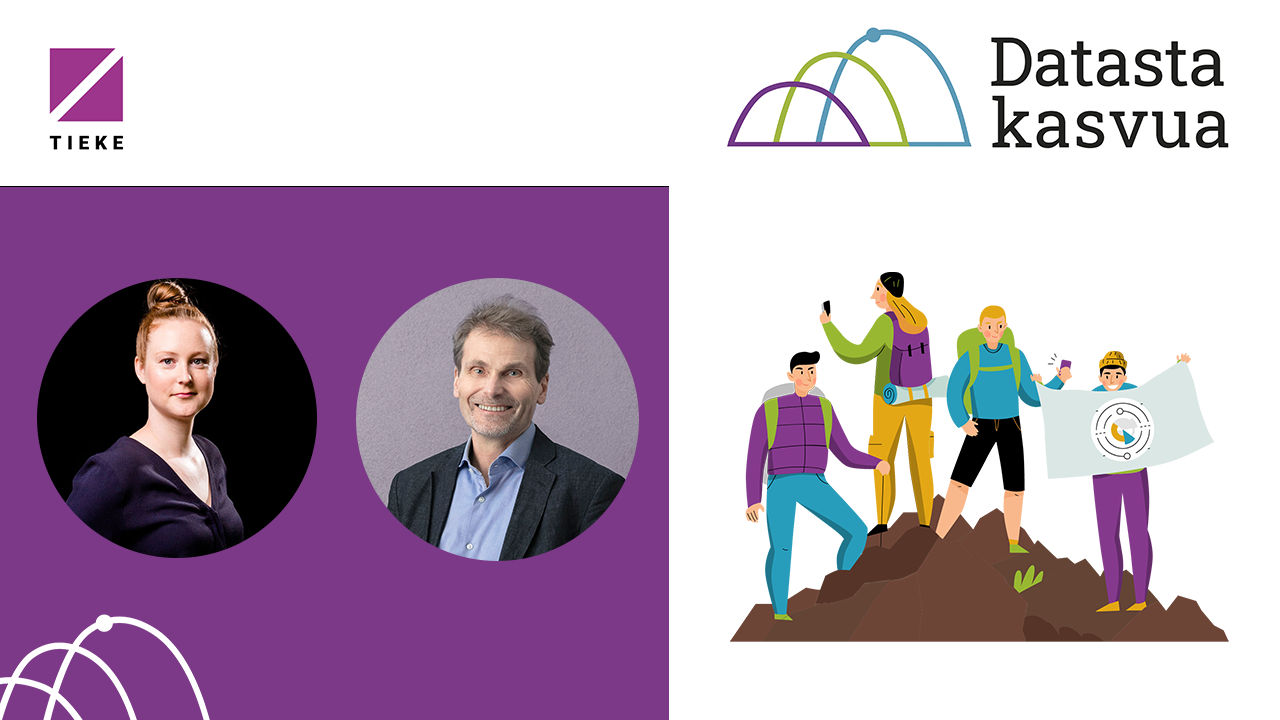Entrepreneurs aim for profitable business. You cannot rest on your laurels, but must adapt your operations to meet changing customer needs and expectations. Data plays an important role here.
In the data economy, data is analysed and used to develop services, products and business activity, to increase sales or innovate. There is much talk about the data economy, but the value data has for business competitiveness is still not fully understood. However, data should be seen as capital, not to be wasted but to be understood and processed. So far, SMEs have made very little use of data.
The Growth from Data programme developed by Sitra provides Finnish companies with information and tools for developing services using data. Last year, TIEKE ran a Growth from Data coaching course for micro businesses and SMEs in the travel and hospitality sector. This introduced more than 500 entrepreneurs from all over Finland to the potential of data.
Needs before technology
So what use is data for entrepreneurs? When talking about data, it is easy to focus on the technologies used to collect and process data. However, many of the required technologies are already in use. Data gets collected in customer information systems, payment apps and website crawlers as well as in monitoring energy use and social media.
New ideas are needed to identify and process data that has already been collected and to creatively combine data sources enabling new value from data. Before acquiring new technologies, companies should consider what business and customer needs they want to address using data.
Understanding customers
During the course of the coaching it became evident that data is particularly useful for identifying customer needs and activities. Software and platforms accumulate information on customer preferences, consumption patterns and interests that can be used for marketing and product development. Other ways of collecting data include customer surveys and by offering customers the opportunity to sign up to an email list or mobile app.
Coaching participants realised that data can increase customer insight, which can then be used to collect the right data. Understanding customers better helps to better target services to new audiences. You should start testing your assumptions with customers even as you start developing ideas. Less is sometimes more: a narrower range targeted and priced for a limited customer group can prove to be a very profitable solution.
The coaching showed that it pays to compile and analyse a customer register as you go along. When you try out marketing in different channels, you can use fairly small investments to test how well the marketing works with different content and in different geographical areas. There is also data available elsewhere: for example, the entrepreneurs realised that leveraging weather data in marketing leisure related services can provide a significant opportunity – it pays to invest in marketing according to the upcoming weather.
An agile start
It is a good idea to start making use of data little by little. Many development projects may feel challenging for micro and SME entrepreneurs, but data experiments are rewarding as they progress rapidly and do not require large investments.
The development of a data-based business model is not a one-off exercise. By continuing to gather and analyse data regularly and boldly, you can gain up-to-date information on your company’s operations and performance. This can help you to react quickly to changes and make decisions based on up-to-date information. You are not alone on your data journey. You can work on ideas together with partners and colleagues and acquire new skills.
This article has originally been published on the Sitra website.
Increased competence in leveraging data
The Datamatka (data journey) coaching is a pathway to sustainable, data-based business for tourism businesses in sparsely populated areas. Conducted by TIEKE, the coaching started in February 2023.
The Growth from data Kasvupolku® (growth path) is a sparring programme intended for data-driven business development. Conducted by KasvuOpen, the programme is aimed at growth-oriented SMEs, regardless of their sector, and started in spring 2023.
The Growth from Data materials pack, used in the programmes is also partly suitable for self-study. The materials provide a comprehensive package of information about the data economy and the tools include different templates, benchmark materials and videos.
Growth from Data – information and tools for companies for developing services using data
The Growth from Data programme developed by Sitra provides Finnish companies with information and tools for using data to develop services. The programme is especially intended for the SME sector and aims at data-driven business renewal. Sitra wants to boost companies’ ability to update their operating methods and business models in order to grasp the opportunities offered by data. The materials of the Growth from Data programme are sector-independent so they can be used by companies in all industries.
The Growth from Data coaching organised at TIEKE during spring and autumn 2022 was especially focused on supporting SMEs in the tourism and hospitality sector to draw up data-based business models and related implementation plans.










